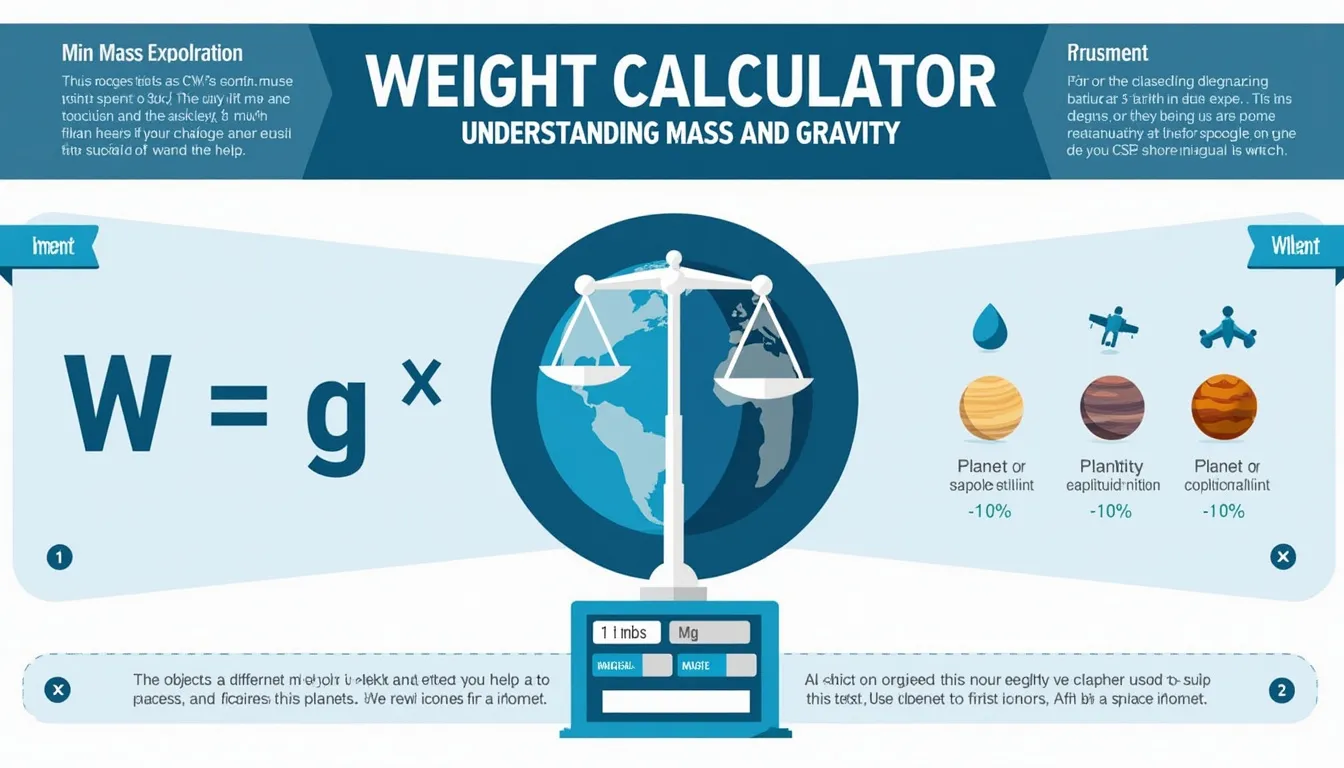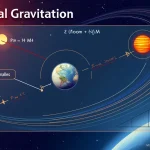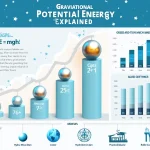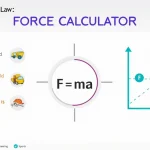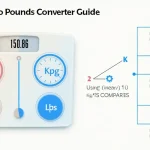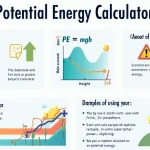Weight Calculator
Is this tool helpful?
How to use the tool
- Fill in Mass (kg): type the object’s mass. Try 42.3 kg or 120 kg.
- Set Gravity (N/kg): enter local gravitational field strength. Try 24.79 N/kg (Jupiter) or 3.70 N/kg (Mercury).
- Press Calculate: the form outputs weight rounded to two decimals.
Formula used
Weight equals mass times gravitational field strength:
$$ W = m \times g $$- W = weight (N)
- m = mass (kg)
- g = gravity (N/kg)
Example calculations
- Jupiter: 42.3 kg × 24.79 N/kg = 1 048.62 N.
- Mercury: 120 kg × 3.70 N/kg = 444.00 N.
Quick-Facts
- Standard Earth gravity: 9.80665 N/kg (CODATA, 2018).
- Moon gravity: 1.62 N/kg (NASA Moon Fact Sheet, 2022).
- Jupiter gravity: 24.79 N/kg (NASA Solar System Exploration, 2023).
- “One Newton is the force needed to accelerate one kilogram at one metre per second squared” (BIPM SI Brochure, 2019).
- Weight drops ≈0.3 % per km altitude above sea level (USGS Gravity Data, 2019).
FAQ
What is weight?
Weight is the force your mass experiences under gravity; it equals mass times local gravitational acceleration (BIPM, 2019).
How do I find gravity for other worlds?
Use planetary fact sheets from NASA; each lists surface gravity in N/kg (NASA Solar System Exploration, 2023).
Why does the calculator output Newtons?
Newtons measure force in SI; the definition links kilograms, metres and seconds (BIPM SI Brochure, 2019).
Does weight change linearly with mass?
Yes. Doubling mass doubles weight because the formula multiplies mass directly by gravity.
Can weight ever be zero?
In deep space, gravity is negligible, so weight approaches zero even though mass stays constant (ESA Education, 2022).
How precise are the results?
The tool rounds to two decimals; main uncertainty comes from the gravity value you enter.
Does altitude affect weight?
Weight decreases about 0.3 % per kilometre gained in altitude on Earth (USGS Gravity Data, 2019).
Can weight be negative?
No. Gravity acts toward the centre of mass, so calculated weight remains positive unless inputs are invalid.
Important Disclaimer
The calculations, results, and content provided by our tools are not guaranteed to be accurate, complete, or reliable. Users are responsible for verifying and interpreting the results. Our content and tools may contain errors, biases, or inconsistencies. Do not enter personal data, sensitive information, or personally identifiable information in our web forms or tools. Such data entry violates our terms of service and may result in unauthorized disclosure to third parties. We reserve the right to save inputs and outputs from our tools for the purposes of error debugging, bias identification, and performance improvement. External companies providing AI models used in our tools may also save and process data in accordance with their own policies. By using our tools, you consent to this data collection and processing. We reserve the right to limit the usage of our tools based on current usability factors.
